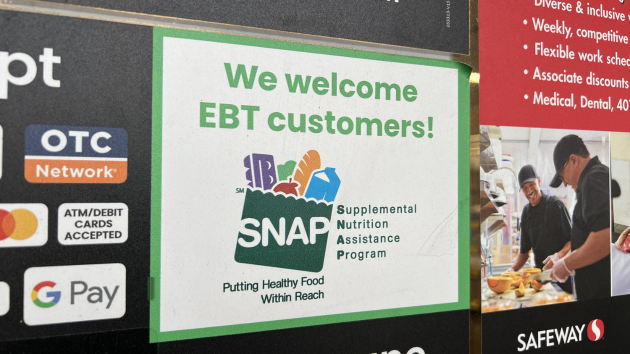FDA proposes new labeling, marketing guidance for plant-based and non-dairy milk alternatives
Written by ABC Audio ALL RIGHTS RESERVED on February 22, 2023

(WASHINGTON) — From soy to macadamia, a variety of plant-based milk alternatives have begun filling shelves in recent years.
Now, the U.S. Food and Drug Administration has caught up with the trend, issuing new guidance for plant-based labels.
On Wednesday, the FDA shared its proposed draft for naming conventions and guidelines on how these products are marketed and sold.
Although the guidance is not final, the FDA suggests that any non-milk product that uses the word “milk” — i.e. nut milk, soy milk — should add a voluntary nutrient statement to convey how the product’s nutritional value compares to that of regular milk, based on the U.S. Department of Agriculture’s Food and Nutrition Service criteria.
For example, according to the draft guidance, the label could read: “Contains lower amounts of vitamin D and calcium than milk.”
FDA Commissioner Robert M. Califf, M.D., said the guidance was developed “to help address the significant increase in plant-based milk alternative products” that have become available over the last 10 years.
He added that the recommendations “should lead to providing consumers with clear labeling to give them the information they need to make informed nutrition and purchasing decisions on the products they buy for themselves and their families.”
Regular dairy milk serves as an important source of vitamins and nutrients for many people. The FDA’s proposal aims to raise consumer awareness that non-dairy milks may not contain the same nutritional value as regular milk.
Back in 2018, the agency requested public feedback on plant-based milk alternatives that used terms like “milk,” “cultured milk,” “yogurt” and “cheese” in their labeling, to better understand “how consumers use these plant-based products and how they understand terms such as, for example, ‘milk’ or ‘yogurt’ when included in the names of plant-based products.”
The agency ultimately received more than 13,000 comments on the request and determined that while consumers “generally understand that [plant-based milk alternatives] do not contain milk,” many are not aware of the nutritional differences between milk and plant-based alternatives, such as whether plant-based products contain calcium.
Plant-based alternatives are not included as part of the dairy group in the USDA and U.S. Department of Health and Human Services’ 2020-2025 Dietary Guidelines.
ABC News’ Anne Flaherty contributed to this report.
Copyright © 2023, ABC Audio. All rights reserved.

 KVSP
KVSP 




